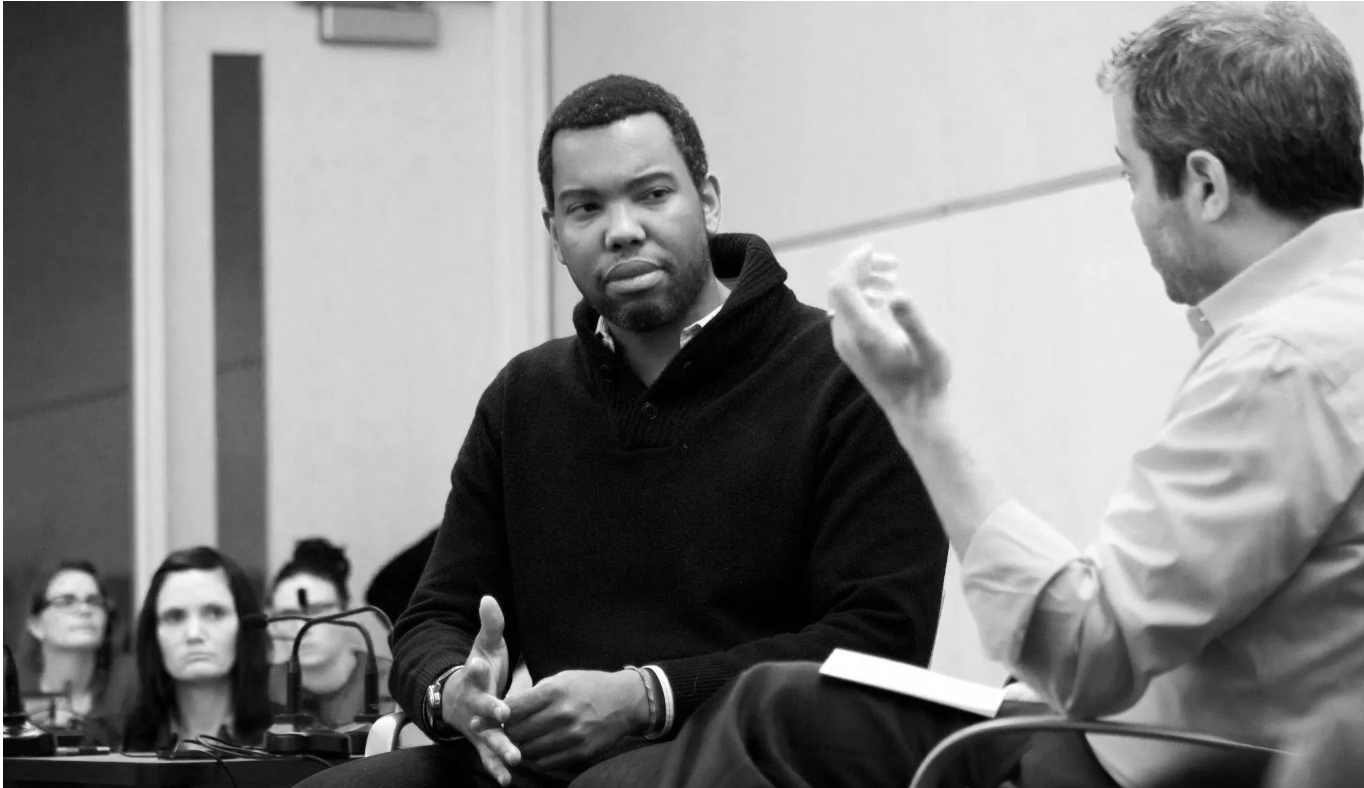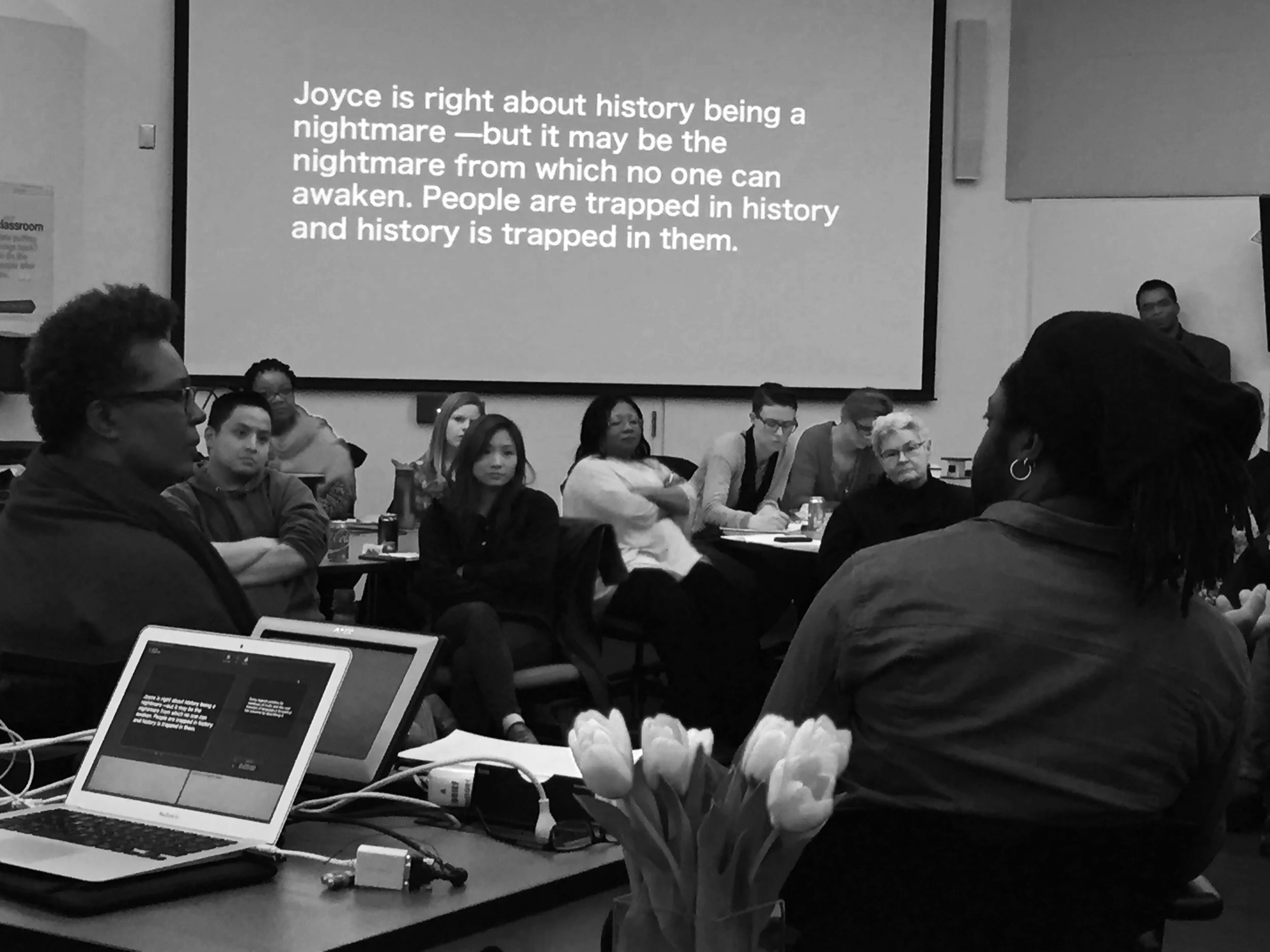The Teachers Institute is a professional learning program for PreK–12 educators seeking to understand the social, economic, and cultural forces shaping classrooms and the communities around them. Instead of treating race, class, gender, or sexuality as categories to manage, fellows examine these constructs as symptoms of social disconnection. Through mentoring, seminars in social theory, public symposia featuring leading thinkers in the arts, humanities, and sciences, and a robust online community, fellows study the art and science of human connection as the foundation of teaching and learning.
THE TEACHERS INSTITUTE
Designed and facilitated by Dr. Lisa Arrastia, the Teachers Institute began in 2011, when Minneapolis Public Schools partnered with the University of Minnesota’s Department of African American and African Studies to create an innovative alternative to standard cultural competency training for educators. The program, now independent, has developed into a place-based model that works with schools, districts, arts partners, and community organizations.
DEMOCRATIC CLASSROOMS.
Writer Ta-Nehisi Coates and social cognitive neuroscientist Matthew Lieberman in conversation during the Teachers Institute symposium: "Is Racism the Neural Adversary of the Social Mind?"
The Institute helps teachers build democratic classrooms where curiosity, imagination, and meaningful relationships shape the work. Fellows learn to teach for understanding, examine their own assumptions, design interdisciplinary projects rooted in students’ real lives, and create conditions where young people want to learn. This work is grounded in love pedagogy™, a practice Lisa has developed over more than a decade to strengthen connection, deepen listening, and help teachers and students see themselves and one another with greater clarity.
Listen to how the Teachers Institute inspired Je'meyah to attend school every day.
INTERDISCIPLINARY INQUIRY.
Writers Claudia Rankine and Marlon James in conversation during the Teachers Institute, "'Strangers in the Village': Imagining (Young) Black Bodies in America."
Fellows complete an individual project supported by an Institute Mentor. Projects have included interdisciplinary inquiries on math, race, and housing; narrative and aesthetic practices; and classroom explorations that position students’ lived experiences as sources of knowledge. Several Institute fellows have presented nationally—most notably at the “Creating Balance in an Unjust World” conference in San Francisco—and have been recognized with national teaching awards.
BECOME A FELLOW.
Fellows during a talk by writer, educator Bill Ayers during the Teachers Institute symposium, "Love Pedagogy: Disrupting the Violence Against Young Bodies."
Apply to join a cohort of educators who take part in seminars, symposia, and guided project development. Fellows typically meet for 6 to 8 Saturdays during the fellowship term and receive CEUs for all seminars. Many cohorts also receive a fellowship award and may earn graduate credit or a Certificate of Advanced Study through a local college or university.
WHAT TEACHERS ARE SAYING.
“The Ed Factory’s Teachers Institute has helped me to see student-student relationships in a new way. It has changed my daily practice and how I relate with my students and how I encourage them to relate with one another.”
“The Teachers Institute was an amazing experience because it allowed me to have a voice and be heard; it gave me a new sense of confidence and embraced my passion for art, education, and social justice.”
“It was so wonderful to meet the inspiring educators and leaders who presented at the Ed Factory’s Teachers Institute, to work with longtime educators, and to hear of the exciting work done by my colleagues. This is my 32nd year of teaching. The Institute challenged me to think more deeply about my teaching in really meaningful ways. ”
“The Teachers Institute is an unbelievably powerful and critical medium for development. I’m grateful to the institute for enriching my ways of thinking. I’m a better teacher, student, and person because of the exposure to critical thinking that the institute facilitated.”




